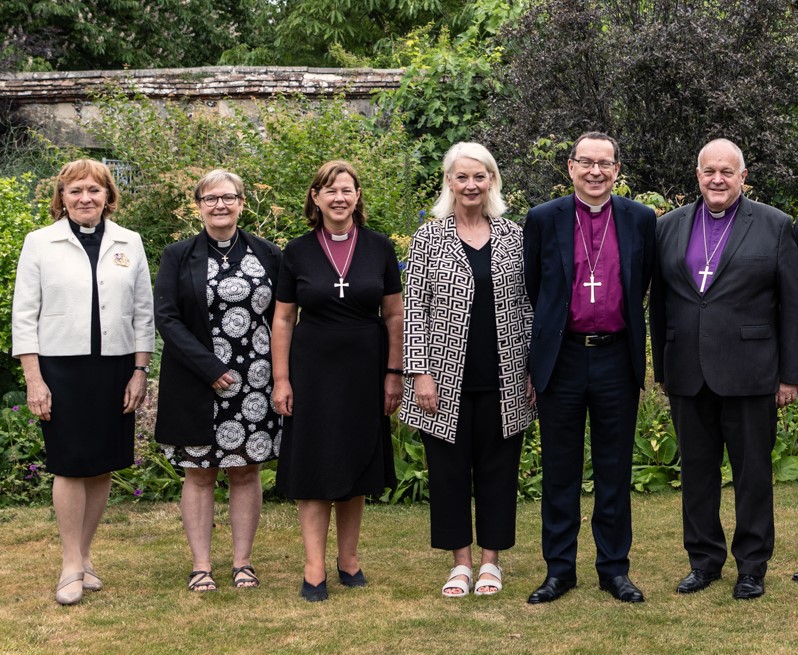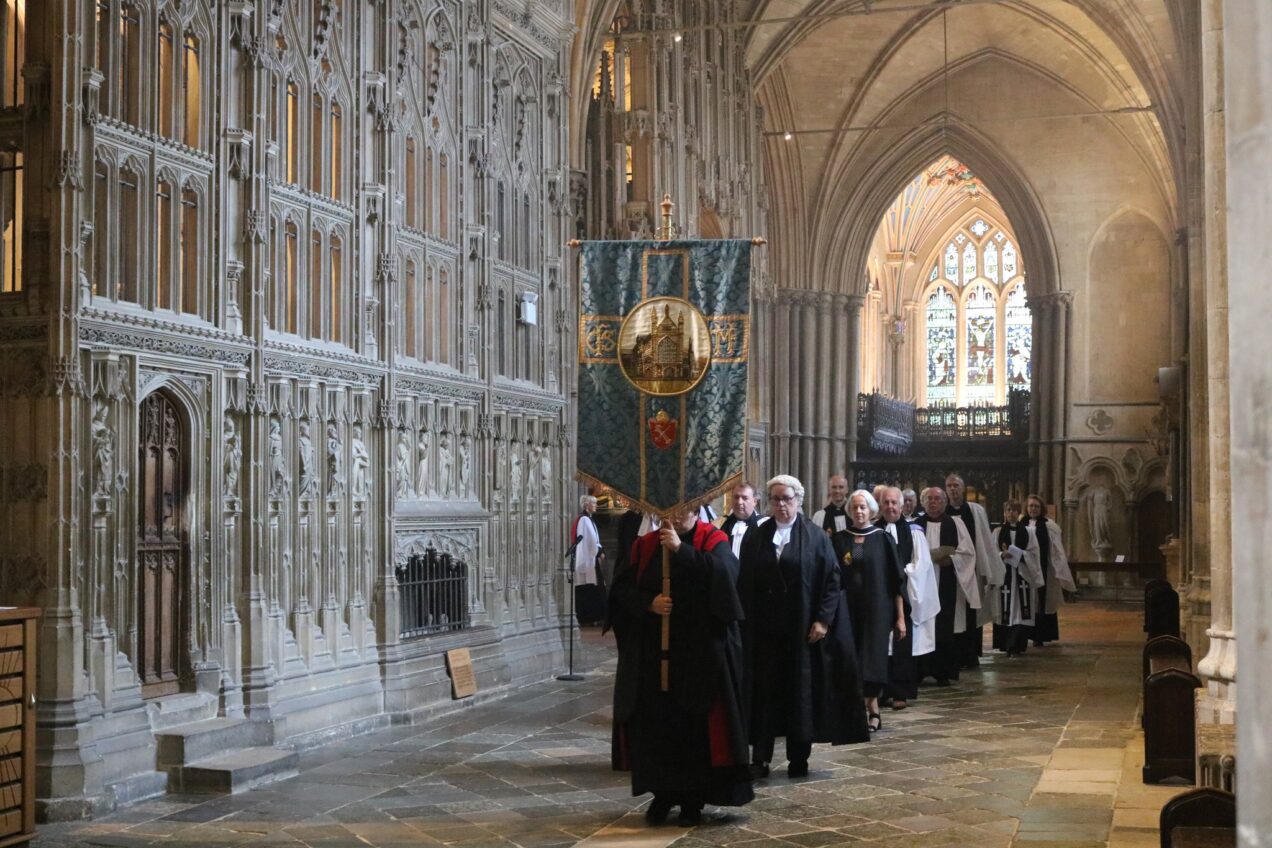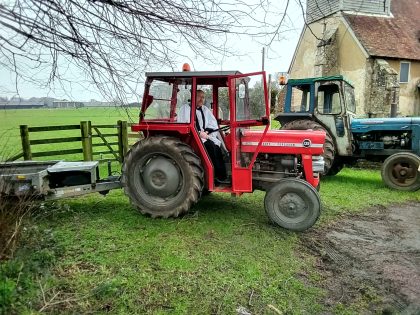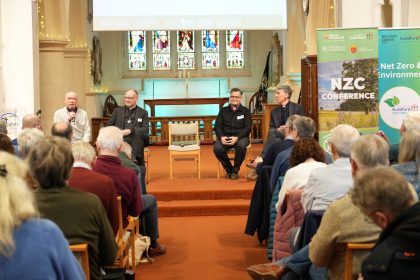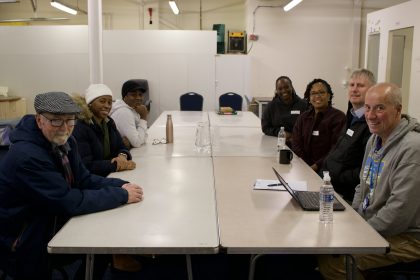On Tuesday 12th September, the 98th Bishop of Winchester, Philip Mounstephen, was ‘elected’ by the College of Canons at Winchester Cathedral in a ceremony that is steeped in history and tradition.
Why is a New Bishop ‘Elected’?
Although the Crown nominates a new Bishop, due to a Parliamentary Act dating back to 1533, the Bishop can only begin their role once the Diocese ‘elects’ (which means ‘consents’) to the appointment. In electing the person nominated, the Cathedral College of Canons expresses the agreement of the Diocese to the previous process of discernment.
While this may sound like a rather arcane and formal process, it essentially marks the start of a chain of events which will allow Bishop Philip to begin his ministry in our Diocese! Following today’s election, this will be ‘confirmed’ on the Archbishop’s behalf in a service called the Confirmation of Election service at St Mary-le-Bow, London on 10th October. Finally, we are looking forward to celebrating the arrival of Bishop Philip at a ‘Service of Welcome’ at Winchester Cathedral on January.
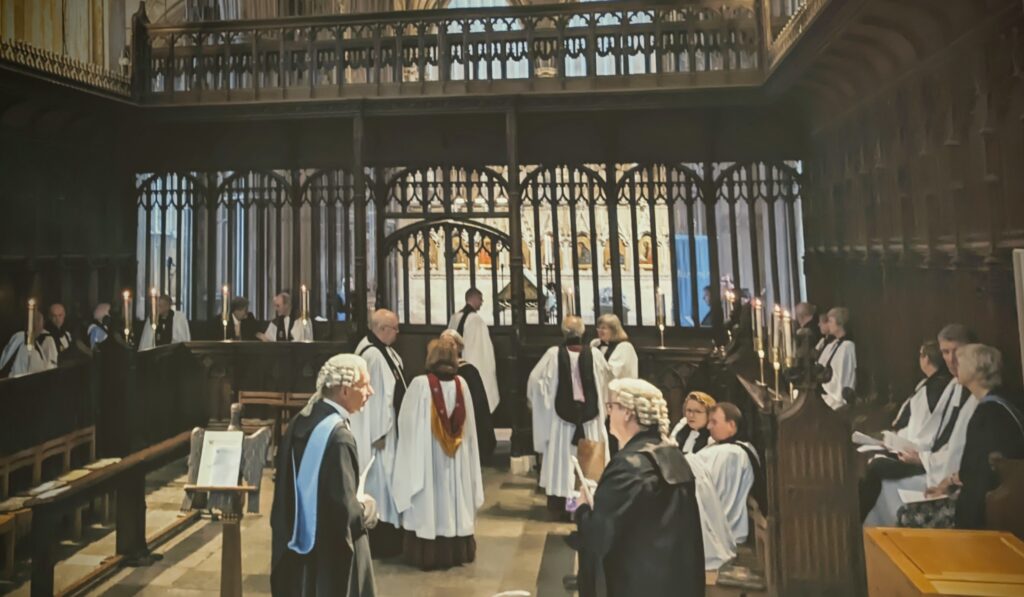
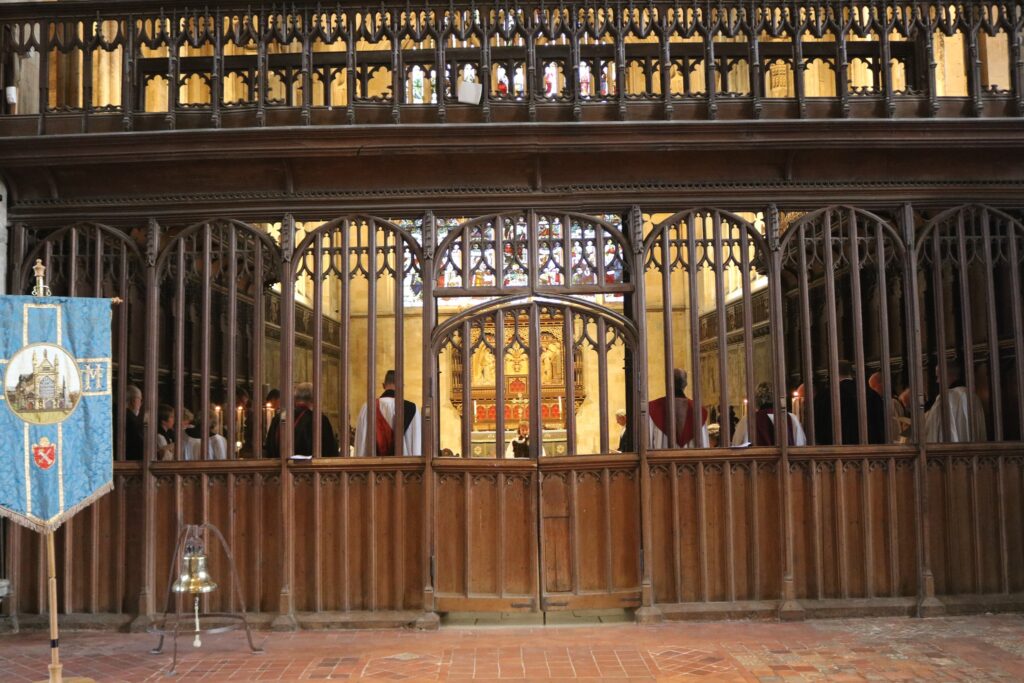
The History of Electing a New Bishop
Since the 4th century there has been an interplay in the choosing of diocesan bishops between the local church and the province – the need for consent expressed on behalf of the local church being ingrained as a fundamental principle. For more than a thousand years, this consent has been expressed formally in the Church in the election ‘made and celebrated’ by the Chapter of the Cathedral Church.
Only rarely has this consent involved ‘free election’ or a choice between alternatives. By the 11th century electio was a procedure for giving legal validity to a decision which had been taken elsewhere. ‘Election’ is also a biblical term referring to the divine choice or calling which may be discerned through human processes and institutions, and thus remains an appropriate term for this solemn expression of consent.
Also of significance is the Appointment of Bishops Act 1533, an Act passed under Henry VIII and which remains partly in force today. Before this Act, the dean and chapter of a cathedral held an election for a new bishop and tended to choose the candidate supported by the monarch. The Act bound the cathedral chapter to elect the candidate whom the monarch selected, and if they declined to do so, they would be punished by praemunire. This could mean the loss of all civil rights, forfeiture of lands, goods and chattels, and even imprisonment!
Obviously the election of a Bishop is no longer the decision of the monarch (nor are there punishments for disagreement!), but the formalities around the election are still in place and remind us of the long history of church and state which is still expressed in our shared civic life today.
The Election of Bishop Philip
The election on 12 September gathered all of the 35 canons of Winchester Cathedral who were ceremonially locked into the Lady Chapel. It involved prayers for ‘those who are to elect the chief pastor of this diocese’ and for Bishop Philip himself, and the affixing of a seal to a declaration to be sent back to the King and the Archbishop of Canterbury.
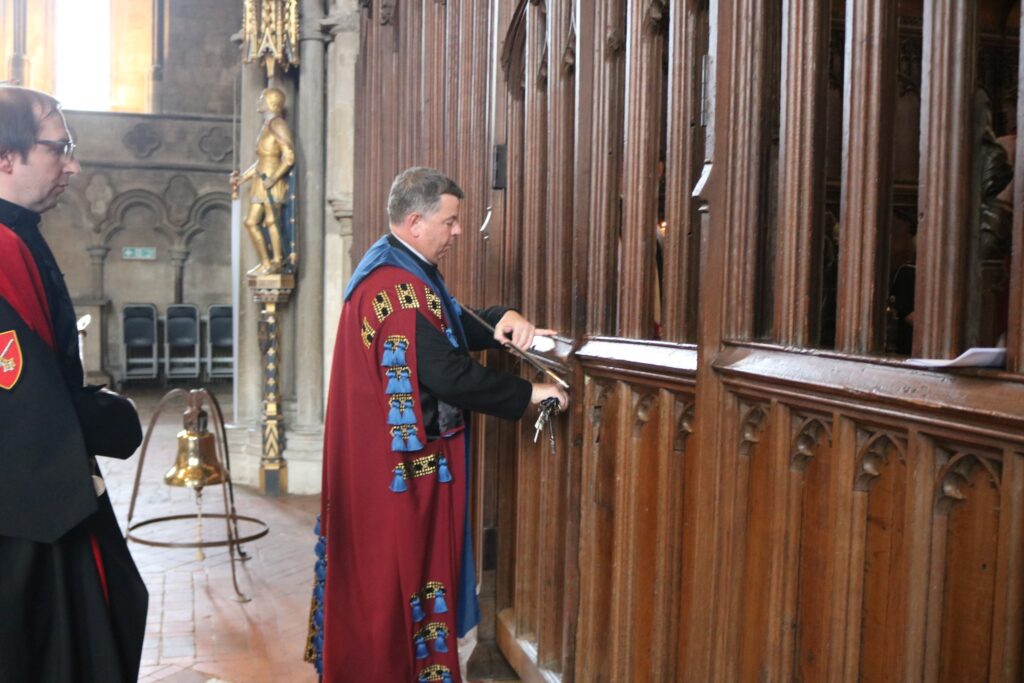
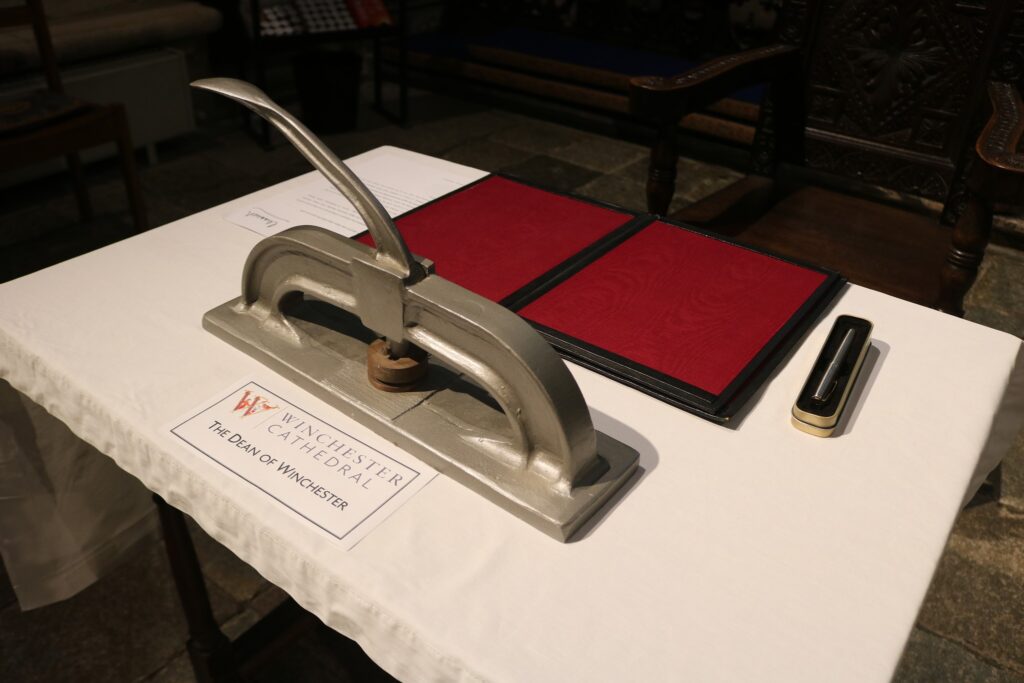
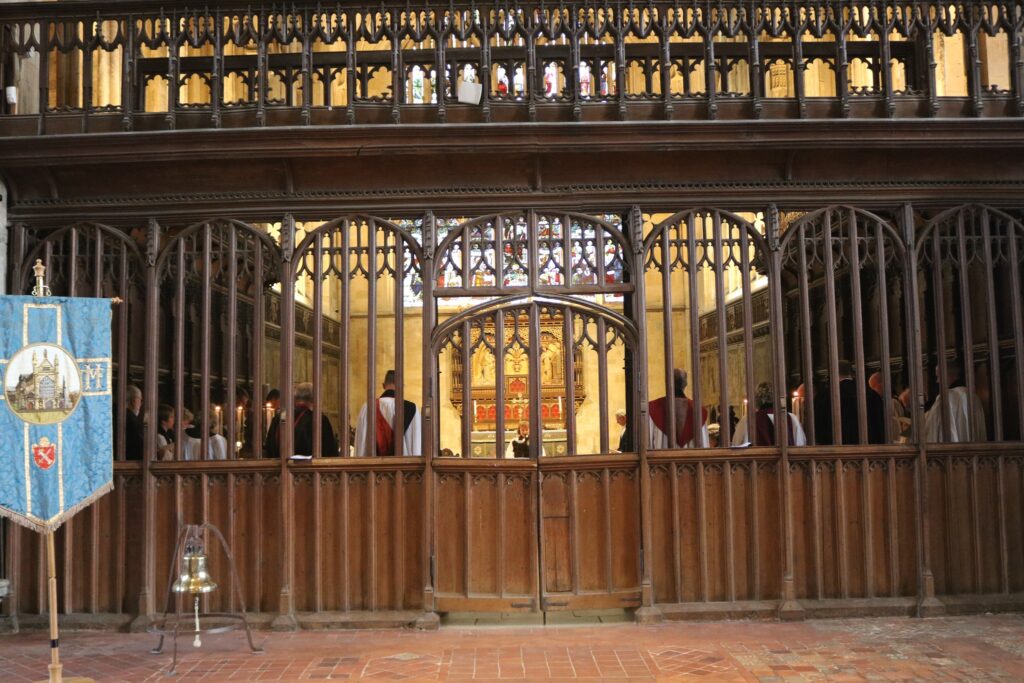
At the end of that ceremony, the doors were unlocked and the canons processed to take part in a special Choral Evensong, with the bells ringing out to mark the moment in a tradition installed in 1334 by Bishop of Winchester, Adam of Orlton.
We invite everyone in Winchester Diocese to pray for Bishop Philip and for each other at this important time in our diocesan life.
